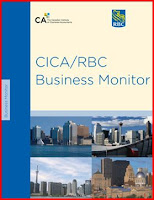Monday, May 31, 2010
IASB - Request for comment on FASB Financial Instruments Exposure Draft
On May 26, 2010, the US Financial Accounting Standards Board (FASB) released a proposed Accounting Standards Update that contains proposals for a new comprehensive standard on financial instruments. Under the FASB’s proposals, many financial assets and financial liabilities would be measured at fair value in the primary financial statements. This is different from the mixed measurement model that is used in IFRS 9 Financial Instruments for financial assets. The appendix to the FASB exposure draft contains a high level comparison of the boards’ respective approaches. The IASB is asking its constituents to submit comment letters on the FASB proposal. Because this project is part of the global convergence project, it is important for the FASB to receive feedback on the proposed model from the international community. (Read the IASB Web Announcement.)
Labels:
accounting,
FASB,
financial reporting,
IASB,
IFRS,
international standards
Friday, May 28, 2010
US – SEC chairman hits back at international accounting convergence myths
The head of the US markets watchdog has sought to put to rest myths and rumours about the US commitment to International Financial Reporting Standards (IFRS). Mary Schapiro, chairman of the US Securities and Exchange Commission (SEC), told an audience of accountants at the US CFA Institute’s annual conference, she was committed to international standards, but was equally committed to protecting US investors from possible side effects. (Read the article “Schapiro hits back at international accounting convergence myths” at Accountancy Age online.)
Thursday, May 27, 2010
US - Test Your Knowledge of International Standards
More than 100 countries around the world, including all major US trading partners, now use or have committed to adopting IFRS. Nearly as many use international auditing and assurance standards and international ethics standards developed by independent standard-setting boards under the International Federation of Accountants. To ensure that CPAs have a basic competence in these standards, the AICPA Board of Examiners has decided to test them in three of the four sections of the exam beginning in 2011. (Review sample questions and answers in the May 2010 Journal of Accountancy article Test Your Knowledge of International Standards.)
Labels:
accounting,
AICPA,
auditing,
corporate reporting,
IASB,
IFAC,
IFRS,
international standards
Wednesday, May 26, 2010
FEI files letter with FASB and IASB on impact of MOU Standards
In a letter dated May 7, 2010, the Committee on Corporate Reporting (CCR) of Financial Executives International (FEI) expressed concern to Robert Herz, chairman of the Financial Accounting Standards Board, and Sir David Tweedie, chairman of the International Accounting Standards Board. The letter was written “to express our significant concern that springs from the unprecedented volume as well as the complexity of proposed standards expected to be issued in the coming months. We urge the Boards to consider the adverse effect that is likely to have on the effectiveness of the Boards’ due process procedures. We have written to you on this subject previously (see our letter dated February 12, 2010 RE: Effective Dates of New Standards), however, we are concerned that actions will not be taken to scale the number and timing of the Exposure Drafts (“EDs”) in a way that permits a fulsome analysis and thorough response from all interested constituents.” (Read the FEI News Release and the CCR Letter to the FASB and IASB.)
Labels:
accounting,
FASB,
FEI,
IASB,
IFRS,
international standards
Tuesday, May 25, 2010
Start Somewhere with Social Media
Social media is basically three major activities: listening, connecting and publishing. You use tools like Twitter Search and Google Blogsearch to listen. You use tools like Twitter or Facebook or OPEN Forum or LinkedIn (or a mix of them) to connect, as well as comment on blogs and the like. You use tools like blogs or email newsletters, video or even photos on Flickr to publish. Those are all the components without the hype. (Read the article "Start Somewhere with Social Media" at Open Forum online.)
Monday, May 24, 2010
US - Navigating IFRS: two-day executive training program
Deloitte (United States) will conduct two-day executive training programs covering key IFRS accounting principles and practical considerations related to IFRS implementation. Deloitte IFRS leaders will deliver course sessions that address important technical accounting changes, tax considerations, technology and systems questions. Dates and locations are: Chicago: June 22-23, 2010 and Houston: September 15-16, 2010. For more information, read the brochure Navigating IFRS: Two-day executive training program.
Friday, May 21, 2010
6 Ways to Be Innovatively Global
Foreign market entry does not always require a major investment. If you follow these six tips, overseas business will be at your doorstep in no time at all. (Read the article "6 Ways to Be Innovatively Global" at Open Forum online.
Thursday, May 20, 2010
Search Engine Optimization (SEO) for Beginners
There is a lot written these days about advanced search engine optimization (SEO) techniques. But if you are new to this strange world of getting sites like Google, Yahoo, and MSN to rank your pages high on a search result, where do you begin? (Read the article "SEO for Beginners" at Open Forum online.)
Wednesday, May 19, 2010
Social Media Best Practices for Business
Social networks and blogs are changing how consumers find places and services, how and where they share their experiences, and eventually, where they will spend their time and money. Without an understanding of, and participation in, social networks, you can miss shaping and contributing to the decision-making process of those who define the success of your business. (Read "Social Media Best Practices for Business" at Open Forum online.)
Tuesday, May 18, 2010
Link Between Decision-Making and ERM: A Case Study
Enterprise Risk Management (ERM) is not a separate, isolated process performed outside of normal business processes. Quite the contrary, ERM, similar to fraud prevention, ethics and internal controls, is integral to an organization’s success. It should be imbedded into and integrated within organizational strategy and incorporated into an organization’s core activities. ERM needs to become part of organizational culture. (Read the May 2010 AICPA Business Brief Link Between Decision-Making and ERM: A Case Study.)
Monday, May 17, 2010
Potential System Impacts of an IFRS Conversion
As a company prepares to convert to International Financial Reporting Standards (IFRS), the impact to information technology (IT) and financial systems should be taken into consideration. Representatives from the company’s IT department should be involved throughout the planning process to evaluate how the proposed accounting changes will impact the financial systems (transactional or reporting). The impact can vary depending on a company’s existing structure and environment. This may include its IT and financial systems capability/integration, industry complexity, company size, relevance of business process/transaction, internal control structure, mergers & acquisitions process, and other attributes. For more information, read the AICPA white paper, Financial System Considerations in IFRS Conversion Projects, which explores IT implications of an IFRS conversion, implementation considerations and lessons learned from the European experience.
Friday, May 14, 2010
IFAC Enters Sustainability Pact
The International Federation of Accountants (IFAC) and the Prince of Wales' Accounting for Sustainability Project have reached a memorandum of understanding. The two organizations agreed to support the role of global accounting in developing sustainable companies. Key priorities include raising awareness and establishing an international integrated reporting committee. (Read the IFAC Media Release online.)
Thursday, May 13, 2010
Canada - Readiness for Transition to IFRS
Many executive CAs believe their companies are well positioned for Canada’s transition to International Financial Reporting Standards (IFRS) but some are still in the early stages of preparation, according to the latest CICA/RBC Business Monitor (Q1 2010). Of the respondents whose companies will need to adhere to IFRS, 79% indicated that it is very likely they will be ready for the changeover. Another 16% stated it is somewhat likely they will be ready. The move to IFRS is mandatory in 2011 for publicly-accountable enterprises. (Read the CICA Media Release.)
Wednesday, May 12, 2010
5 Ways to Keep Customer Information Safe
Every time you do business with a customer or a client, you wind up with access to some very sensitive information, such as payment accounts. Without appropriate protection in place, clients may find themselves asking why they should trust you. If you handle any part of your business online, the chances of someone gaining access to information immediately goes up. But, there are steps you can take to keep your customers' information safe. (Read the article "5 Ways to Keep Customer Information Safe" at Open Forum online.)
Tuesday, May 11, 2010
Making Corporate Reports Readable - Time to cut to the chase
An ability to discern the wood from the trees is a tribute to effective communication. Over the last decade, the corporate reporting wood has become undeniably dense and dark, especially in the banking and financial services sectors. Shareholders have been the so-called beneficiaries of more information than they could have ever believed possible. But more does not mean better. The reality is that more and more corporate information meant that directors and shareholders struggled silently to deliver effective accountability. Stewardship suffered and today we are slowly coming to terms with the painful consequences. (Read Making Corporate Reports Readable - Time to cut to the chase, a 2010 discussion document issued by the Technical Policy Board of The Institute of Chartered Accountants of Scotland.)
Monday, May 10, 2010
A Global View of Risk
The World Economic Forum's Global Risk Network challenges executives to think more broadly about threats to their businesses. Rather than viewing single risks in isolation, executives should try to better understand the connections among a host of global problems that could affect their businesses in the next decade. The World Economic Forum's Global Risks 2010: A Global Risk Network Report, prepared by a team of 200 risk experts from around the world, categorizes risks in five areas: societal, geopolitical, environmental, economic, and technological. (Read the article "A Global View of Risk" at CFO.com online.)
Friday, May 7, 2010
Cloud computing - advantages and issues to consider
Cloud computing — providing Web-based services to the public using networks, servers, data warehouses, software applications and Internet services managed by a third party — is an attractive option for companies that view investing capital in computing infrastructure as inefficient. These companies can move their computer processing to a virtual environment, ensuring that costs are more closely tied to the services offered and minimizing their fixed costs. Cloud computing has many advantages. It can be adapted to the size of the business and quickly implemented, and it is transparent in terms of costs and can deliver services that are not available internally. Nevertheless, an organization needs to consider a number of issues before switching to cloud computing. (Read the May 2010 article "Cloud Computing" at CAmagazine online.)
Labels:
CAmagazine,
cloud computing,
information technology,
IT,
value creation,
Web 2.0
Thursday, May 6, 2010
CSR is worth the investment
When prospective employees attend interviews at The Co-operators Group Limited, a national insurance provider, they often have the company’s sustainability report in hand. “They ask us if the information about our social and environmental performance is real, and we tell them - what you read is what you get,” relates Barbara Turley-McIntyre, director of sustainability and corporate citizenship. “The insurance industry is facing a war on talent, and we want to be an employer of choice. Our sustainability program is a big part of that.” New research findings from the Hewitt Associates 2010 Best Employers in Canada study confirm that the experience of The Co-operators Group is growing across a range of industries. There is a strong link between employee engagement and the way employees view their employers’ corporate social responsibility (CSR) approach. (Read the May 2010 article "CSR is worth the investment" at CAmagazine online.)
Wednesday, May 5, 2010
Use Social Media to Enable Innovation
Social media tools have many important business uses. One of the most powerful is the ability to foster innovation. With social media, companies can tap into the needs, desires and opinions of a wide audience and connect with a highly targeted group that is directly relevant to their business. These connections can be valuable sources for new ideas and alternative ways of thinking. (Read the article Use Social Media to Enable Innovation at Open Forum online.)
Tuesday, May 4, 2010
Social Media: Build Customer Loyalty & Evangelism
Businesses are increasingly turning to social media to strengthen relationships with their customers. By engaging in a rich, ongoing dialogue with customers, companies can better understand their evolving needs, resolve service issues more effectively and gain true brand advocates. This guide can help you understand how to use social media to enhance your customer relationships with information and practical advice. (Read the article Social Media: Build Customer Loyalty & Evangelism at Open Forum online.)
Monday, May 3, 2010
Social Media: Implement Smart Growth Strategies
Social media is transforming the way companies do business. This guide provides some insight into how you can take advantage of it. You can learn powerful methods of using social media to help generate sales, to track customer needs as they evolve and to learn how social media can fit into your marketing plan. (Read the article Social Media: Implement Smart Growth Strategies at Open Forum online.)
Subscribe to:
Posts (Atom)




















